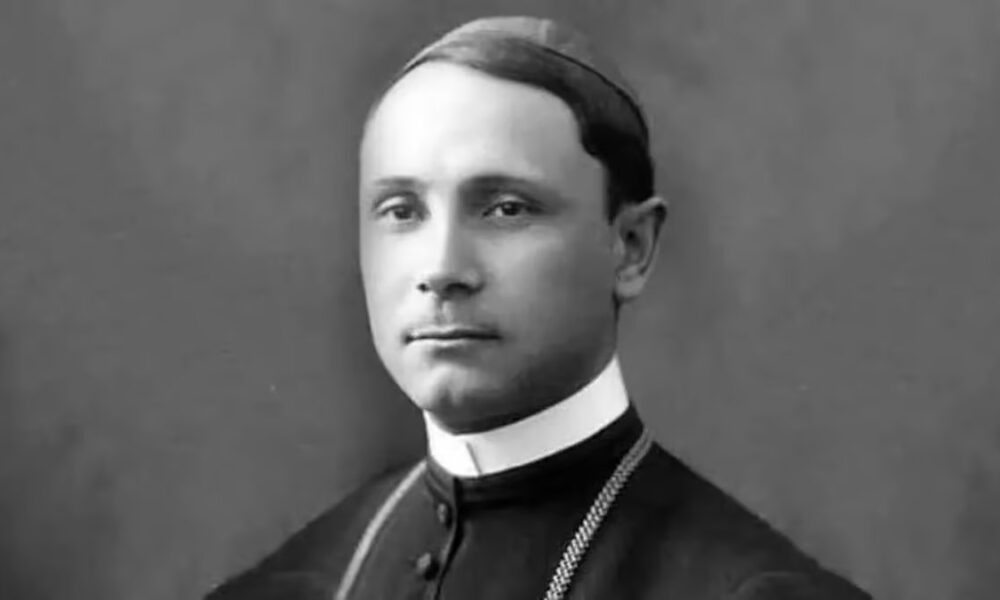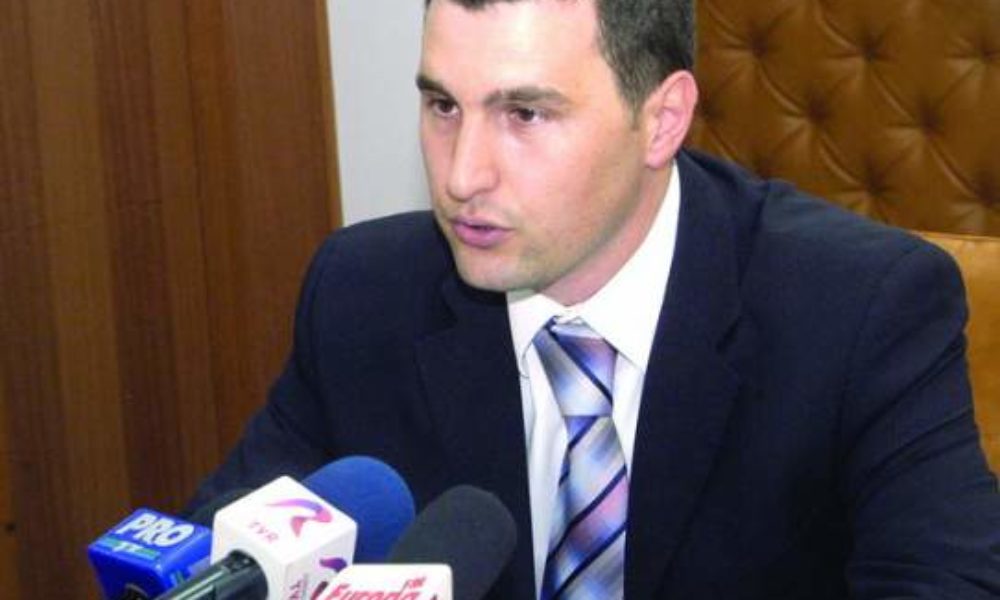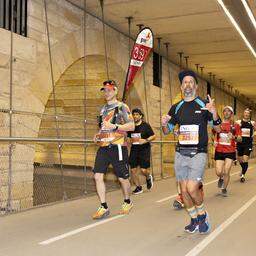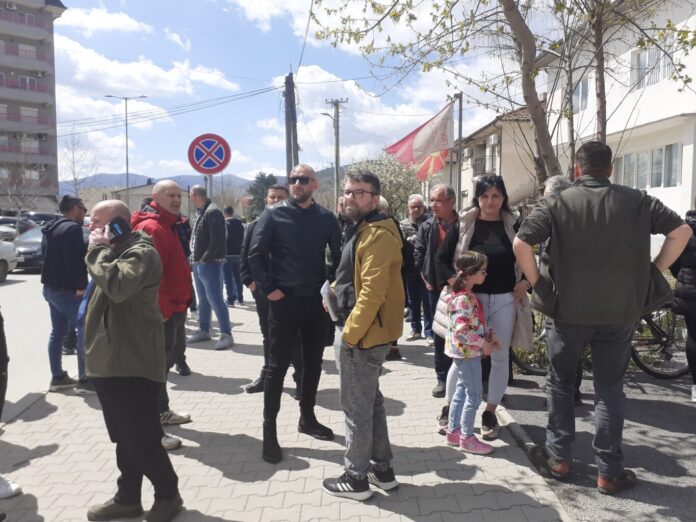« My struggle ends, yours continues. »

« My struggle ends, yours continues. » They were the last words spoken, on May 28, 1970, by the first cardinal in the history of Romanians.
Wednesday, May 28, marks the 55th anniversary of Iuliu Hossu, nicknamed « Bishop of Union », who remained in the consciousness of Romanians as a announcer of the Great Union: he was the one who read in Alba Iulia the resolution of the Transylvanian Romanians with the Kingdom of Romania, on December 1, 1918.
Later he embraced with the Orthodox bishop Miron Cristea (future patriarch of the Romanian Orthodox Church). He was only 32 years old. A symbolic moment, which marks the desire of all Romanians to live united, regardless of confession.
Bishops Iuliu Hossu and Miron Cristea, along with two other Transylvanian leaders, Alexandru Vaida-Voievod and Vasile Goldiș led to Bucharest the declaration of union from Alba Iulia. The statement was handed to King Ferdinand I of the Romanians. As a law senator in the Parliament of Greater Romania, Bishop Iuliu Hossu defended the sovereignty and integrity of the country, against the revisionism of the time. In December 1932, within a popular assembly, in which about 30,000 people participated, held in the central market of Cluj, pronounced against the revision of the state borders. He was also honorary member of the Romanian Academy. In the Kingdom of Romania, Bishop Iuliu Hossu became a law senator.
In 1930 the Diocese of Gherla became from Cluj-Gherla, moving its center to the city of Cluj, Iuliu Hossu becoming bishop of Cluj-Gherla.
Between 1940-1944, in which the North Transylvania was under the Hungarian administration, Bishop Iuliu Hossu remained in Cluj. When Northern Transylvania was occupied by Horthysta Hungary, Bishop Iuliu Hossu came to the aid of the Jews threatened to Auschwitz, and his gesture contributed to the rescue of thousands of people, as he said, Dr. Moshe Carmilly, the chief rabbi of Cluj.
Also in Cluj he was also in the beginning of the communist regime (1945-1948).
On October 28, 1948, he was arrested from his episcopal residence in Cluj and taken to the Patriarchal villa in Dragoslavele, where he was kept, under guard, together with the other arrested Greek-Catholic bishops, such as Valeriu Traian Frenţiu, Ioan Suciu and Tit Liviu Chinese. Both the communist authorities and the leadership of the Romanian Orthodox Church, the Patriarch Iustinian Marina Personal, proposed the Metropolitan Chair of Moldova, in exchange for renouncing the Catholic faith and the connection with Rome, with the papal chair. Refusing the transition to Orthodoxy, Bishop Iuliu Hossu was first transferred to the Căldărușani Monastery, and in 1950, to the Sighet Penitentiary. In 1955 he was taken to Curtea de Argeș, and in 1956, at the Ciorogârla Monastery.
In 1955, Petru Groza was seen with Iuliu Hossu and Alexandru Rusu. He asks to be taken out of prison and behave with them as if they were not imprisoned. Seeing, however, that they do not give up, Groza orders Iuliu Hossu to be moved to the Căldăruşani Monastery, where an isolation regime is required. There and remains until the end of his life, in 1970.
A year before he goes out, the Pope invites him to Rome to give him the cardinal title. Iuliu Hossu refused because he was afraid that he could not return to the country. To protect him, the Pope named Cardinal secretly, « in the Pectore », a distinction that he found three years after Hossu’s death, in 1973. Only then did Iuliu Hossu, be called Cardinal, the first cardinal of the Romanians.
Cardinal Iuliu Hossu died on May 28, 1970 at Colentina Hospital in Bucharest, then spoke: “My struggle end, yours continues”Cardinal Iuliu Hossu has never been released again. At his head was Bishop Alexandru Todea. The tomb of Iuliu Hossu is in the Bellu Catholic Cemetery.
His tomb has become a place of pilgrimage to Catholic believers. After the fall of communism and the exit of the Greek-Catholic Church in the catacombs, a beatification process was opened, concluded last year. On June 2, 2019, in Blaj, Pope Francis was a happy proclamation of the church on Iuliu Hossu, along with the other 6 bishops who were dead for faith in communist prisons.
Sources: Episcopiabucuresti.ro; rfi.ro; Historia.ro; Bru.ro.







/s3/static.nrc.nl/images/gn4/stripped/data132973943-82fa37.jpg|https://images.nrc.nl/U1AhsFW3erQa-qCmiTXxenHCZ5U=/1920x/filters:no_upscale()/s3/static.nrc.nl/images/gn4/stripped/data132973943-82fa37.jpg|https://images.nrc.nl/LnNFzy22QjsgZwQk9RhJbHRAQ38=/5760x/filters:no_upscale()/s3/static.nrc.nl/images/gn4/stripped/data132973943-82fa37.jpg)

